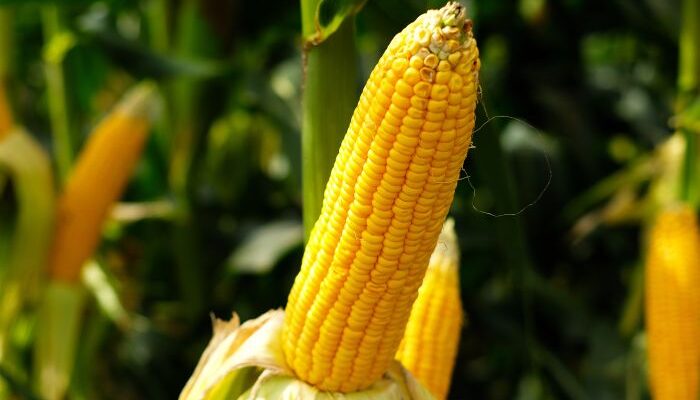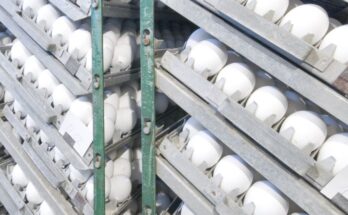All India Poultry Breeder Association (AIPBA) Delhi has written to the Ministry of Fisheries, Animal Husbandry & Dairying to allow duty-free maize imports to enable the poultry industry to meet its future requirements. The current basic import duty on maize stands at 50 per cent, the association said.
Citing concerns over the rising maize consumption in ethanol production, the All India Poultry Breeder Association (AIPBA), in a memorandum to the Ministry of Fisheries, Animal Husbandry & Dairying, pointed out that India’s 34.60 MMT annual maize production is insufficient to meet the requirements of the poultry industry as well as nation’s food security.
“As per estimates of the Indian Institute of Millets Research (IIMR), the poultry and livestock industry consumes more than 60 per cent of the country’s maize production. In this context, the government’s ambitious plan to generate half of the ethanol from maize by 2025-26 may have some serious implications for sectors like poultry and livestock. Diverting such a significant chunk of current maize production to ethanol could impact their access to essential feedstock, creating a severe demand-supply gap in the coming years,” said, the memorandum submitted to the government by the All India Poultry Breeder Association under the chairmanship of Bahadur Ali who is also the Managing Director of IB Group.
You may also like to read – Need to make agricultural research demand driven with private sector engagement: Dr. Rajeev Varshney, Murdoch University
“Over the last decade, maize production growth has been at 4.5 per cent, while the poultry industry has experienced a growth of 8-9 per cent. This disparity highlights the anticipated maize shortage for the poultry industry, particularly in the wake of the government’s plan to promote maize for ethanol in a big way,” the association said.
“Addressing the rising demand for maize in both livestock feed and other industries presents two options: importing maize or increasing domestic production. However, significant short-term increases in domestic output are deemed improbable. Therefore, importing maize from other countries emerges as the most viable solution to meet the immediate demand,” the association stated in its memorandum to the Ministry of Fisheries, Animal Husbandry & Dairying on urging to scrape import duty on maize.
“Ethanol’s growing thirst for maize has also pushed prices skyward, posing a major challenge for Indian poultry farmers. With maize prices hovering around Rs 22-23 per kg across India, poultry farmers are grappling with unsustainable costs. The burden is expected to intensify further by February 2024, which may adversely impact the poultry industry,” AIPBA said.
India is the sixth largest producer of maize in the world and its production in India is second only to wheat and rice.
Top 10 countries producing maize & per capita consumption (Data Year: 2023)
| S.No. | Countries | Maize Production (MMT) | % of Total PRD | Population (Millions) | % of Total Population | Person/KG/Year |
| 1 | US | 382.60 | 32% | 335.90 | 4% | 1,139 |
| 2 | China | 277.00 | 23% | 1,425.67 | 18% | 194 |
| 3 | Brazil | 129.00 | 11% | 216.38 | 3% | 596 |
| 4 | EU | 59.70 | 5% | 448.40 | 6% | 133 |
| 5 | Argentina | 55.00 | 5% | 45.77 | 1% | 1,201 |
| 6 | India | 34.60 | 3% | 1425.78 | 18% | 24 |
| 7 | Ukraine | 28.00 | 2% | 36.74 | 0.5% | 762 |
| 8 | Mexico | 27.40 | 2% | 132.35 | 2% | 207 |
| 9 | South Africa | 16.80 | 1% | 60.41 | 1% | 278 |
| 10 | Canada | 15.30 | 1% | 38.78 | 0% | 394 |
| 11 | Russia | 14.60 | 1% | 146.09 | 2% | 99 |
| 12 | Indonesia | 13.10 | 1% | 280.83 | 4% | 46 |
All India Poultry Breeder Association also believes that it is crucial to strike a balance between the use of maize for ethanol production and its use as a food crop. Sustainable practices, efficient resource management, and a comprehensive approach to agricultural and energy policies are essential to ensure that the benefits are realized without compromising the nation’s food security.





